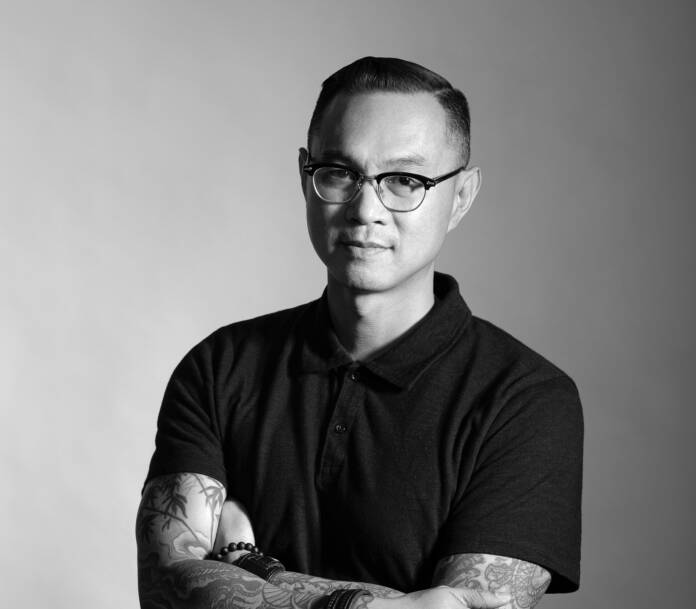When Phuc Tran, who will be in conversation with author Viet Thanh Nguyen this Fri/26 evening, was asked to do a TEDx talk a few years ago, he decided he might as well put everything he had into his story, which was called “Grammar, Identity, and the Dark Side of the Subjunctive.”
“It was sort of about refracting the refugee experience for me through the lens of language, and how I saw that playing out in my life at the time,” he said. “I had this platform to talk about my story, so I sort of threw the whole kitchen sink in—everything from John Hughes and ‘80s pop culture to grammar and language. I sort of swung for the fences, so even if the audience didn’t connect to it, it would feel authentic to me.”
Audiences did connect to Tran’s talk. National Public Radio played it on its TED Radio Hour. An agent heard it and asked Tran to write a book about leaving Saigon in 1975 with his family and moving to a small town in Pennsylvania. Tran said if he thought about writing a book at all before, it was maybe when he was in his 70s and retired, not when he was teaching Latin, working as a tattoo artist at Tsunami Tattoos, and parenting two young daughters.
“I think to the regret of my wife, I hardly say no to anything,” he said. “No adventure starts with ‘No.’”
So Tran wrote Sigh, Gone: A Misfit’s Memoir of Great Books, Punk Rock, and the Fight to Fit In. In it he discusses the racism his family faced as the only Vietnamese family in town; getting beaten and made to kneel on uncooked rice; using the McDonald’s drive-through to avoid being stared at inside; getting into skateboarding and punk right before high school, and finding a group of friends where he fit in. These friends make a huge difference in his life, supporting him whatever he chooses to do, including his academic achievements.
“They were so free of judgement,” Tran said. “It was antithetical to my family and their constant litany of all of my shortcomings.”
He and his friends talked sometimes about getting out of their small town. Tran saw literature as the path for him, and when he came across Clifton Fadiman’s The Lifetime Reading Plan, he followed it, plowing through William Faulkner, Henry James, Molière, and The History of the Peloponnesian War. If nothing else, he thought, it would make him sound smart and hopefully get him into a good college.
But he loved the books and the connection he found the characters’ struggles and search for their place. He’s named the chapters in Sigh, Gone after books, including The Metamorphosis, The Importance of Being Earnest, The Autobiography of Malcolm X, and The Scarlet Letter, and in each chapter, Tran explores the themes of that book and how it relates to his own life.
Help us save local journalism!
Every tax-deductible donation helps us grow to cover the issues that mean the most to our community. Become a 48 Hills Hero and support the only daily progressive news source in the Bay Area.
Tran says now he is reading and enjoying contemporary fiction such as Sally Rooney’s Normal People and Kevin Wilson’s Nothing to See Here.
“In high school, I was leaning into classics so heavily as a life preserver,” he said. “To read for pleasure is so freeing. It’s taking the pressure off of books to save me.”
Tran didn’t read other memoirs when preparing to write his own.
“I know this about myself: I’m really subject to cross-contamination. When I was in a band in high school and college, the song that I would write was like last best song I heard,” he said. “I decided to not second guess myself and go with what was truest to me and my own instincts.”
Tran is somewhat surprised by the reactions to Sigh, Gone, with some people telling him how hilarious it is and others finding it tragic. He’s enjoying readers’ responses and the details they tell him about their lives.
“I got to tell my story the way I wanted to tell it,” he said about writing the book. “And people tell me things like about being in high school and being closeted, and it’s eye opening. When you’re 16 or 17, you think everyone but you has these perfect lives. I’m grateful they’re sharing their story, and I hope it’s an invitation for all of us to listen to each other’s stories.”
ACCENTED: VIET THANH NGUYEN IN CONVERSATION WITH PHUC TRAN
Fri/26, 6:30pm
Tickets and more info here.





